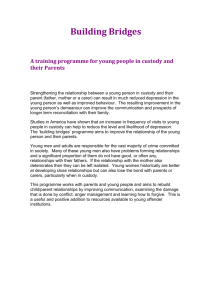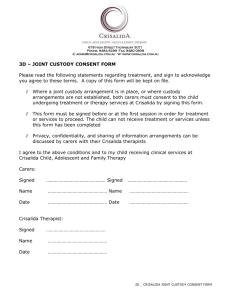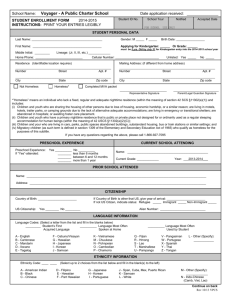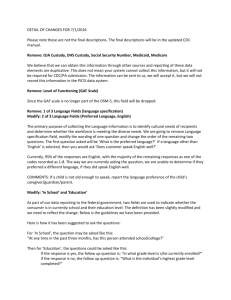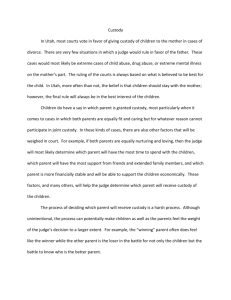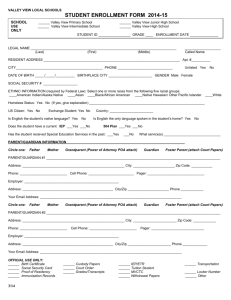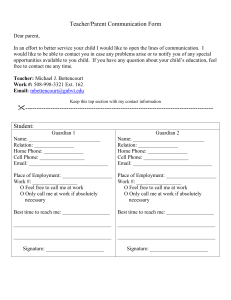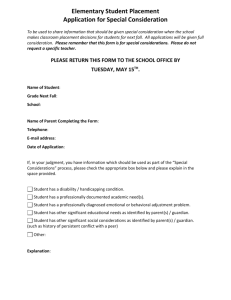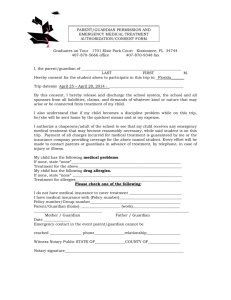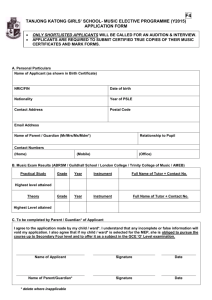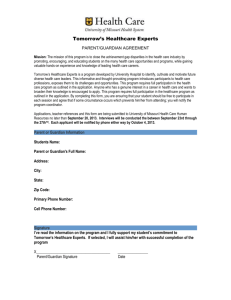Custody/ Separation Policy - Stepaside Educate Together National
advertisement
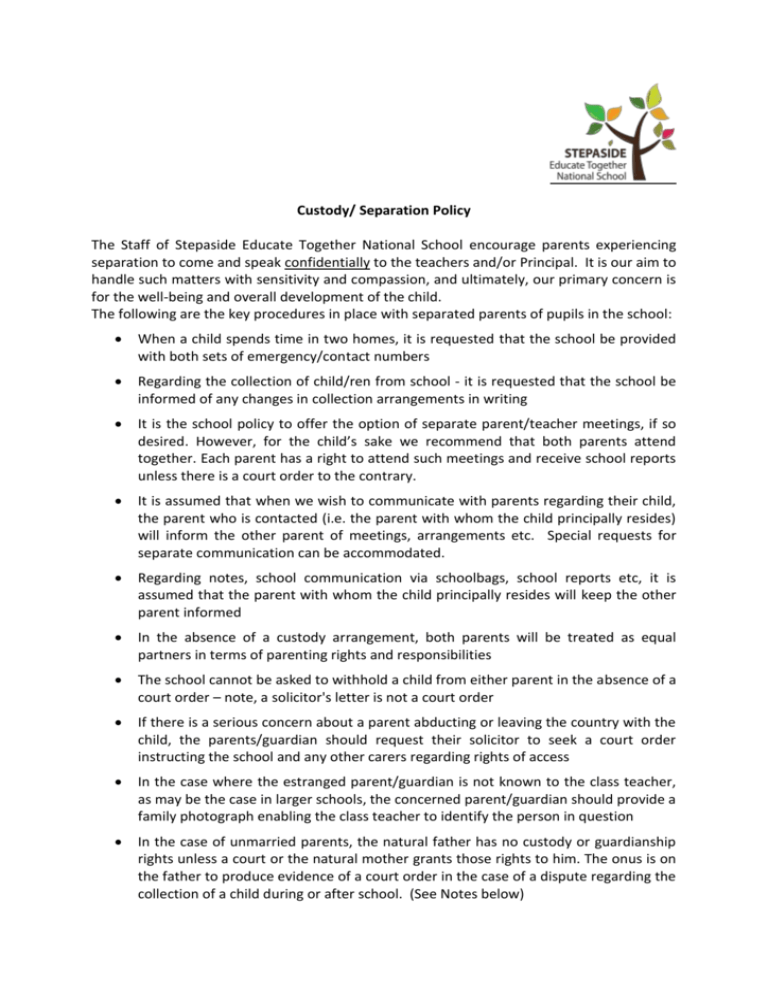
Custody/ Separation Policy The Staff of Stepaside Educate Together National School encourage parents experiencing separation to come and speak confidentially to the teachers and/or Principal. It is our aim to handle such matters with sensitivity and compassion, and ultimately, our primary concern is for the well-being and overall development of the child. The following are the key procedures in place with separated parents of pupils in the school: When a child spends time in two homes, it is requested that the school be provided with both sets of emergency/contact numbers Regarding the collection of child/ren from school - it is requested that the school be informed of any changes in collection arrangements in writing It is the school policy to offer the option of separate parent/teacher meetings, if so desired. However, for the child’s sake we recommend that both parents attend together. Each parent has a right to attend such meetings and receive school reports unless there is a court order to the contrary. It is assumed that when we wish to communicate with parents regarding their child, the parent who is contacted (i.e. the parent with whom the child principally resides) will inform the other parent of meetings, arrangements etc. Special requests for separate communication can be accommodated. Regarding notes, school communication via schoolbags, school reports etc, it is assumed that the parent with whom the child principally resides will keep the other parent informed In the absence of a custody arrangement, both parents will be treated as equal partners in terms of parenting rights and responsibilities The school cannot be asked to withhold a child from either parent in the absence of a court order – note, a solicitor's letter is not a court order If there is a serious concern about a parent abducting or leaving the country with the child, the parents/guardian should request their solicitor to seek a court order instructing the school and any other carers regarding rights of access In the case where the estranged parent/guardian is not known to the class teacher, as may be the case in larger schools, the concerned parent/guardian should provide a family photograph enabling the class teacher to identify the person in question In the case of unmarried parents, the natural father has no custody or guardianship rights unless a court or the natural mother grants those rights to him. The onus is on the father to produce evidence of a court order in the case of a dispute regarding the collection of a child during or after school. (See Notes below) Teachers are under no legal obligation to provide any reports about a child if requested to do so by any third party (e.g. Solicitor/psychologist) Teachers are not obliged to attend court unless under subpoena or summons In the case where a legal order is in place, a copy of this order must be furnished to the school The parent/guardian of each child has full responsibility for informing the school in writing of any change in circumstances at home e.g. separation, divorce, custody arrangements The staff can recommend books, videos, publications etc. dealing with the issue of separation, on request Teachers are expected to o act in a fair, open and even-headed manner in respect of both parents o advise both parents of meetings if the teacher believes that one parent will not inform the other o facilitate separate meetings, if for good reason, both parents cannot attend together o comply with the parent who has de facto day to day control of the child in the event of a dispute o pass relevant information from one teacher to another within the school as needed o If in any doubt, a teacher should seek advice from the Board of Management. Notes re. Guardianship/Custody Married parents are ‘Joint Guardians’. The mother of a non-marital child is the sole guardian. A Guardian is a person legally entitled to parental rights and duties in relation to a child. One of these rights is custody. Custody is the right to physical care and control of the child. If a guardian is deprived of custody rights by a Court they still retain a say in relation to matters regarding a child’s welfare ie the religious, moral, intellectual, physical and social welfare of the child. They can also be awarded access. Signed:___________________________ Date:_____________________________
